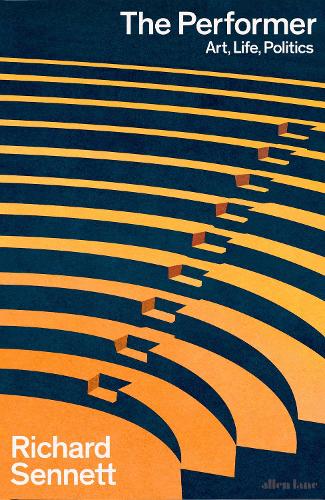
The Performer: Art, Life, Politics
(Hardback)
Available Formats
Publishing Details
The Performer: Art, Life, Politics
By (Author) Richard Sennett
Penguin Books Ltd
Allen Lane
7th May 2024
1st February 2024
United Kingdom
Classifications
Professional and Scholarly
Non Fiction
Social and cultural anthropology
Philosophy: aesthetics
Social and political philosophy
Social and cultural history
History of music
306.484
Physical Properties
Hardback
256
Width 158mm, Height 238mm, Spine 28mm
440g
Description
An exploration of public performance in everyday life, by the leading cultural and social thinker The Performer explores the rich relations of the performing arts to society. It traces performing spaces in the city; the emergence of actors, musicians, and dancers as independent artists; the inequality between performer and spectator; the uneasy relations between artistic creation and social and religious ritual, the uses and abuses of acting by politicians. The Performer ties issues together by exploring the sensory powers which the performing arts themselves share, via physical gesture and blocking onstage, lighting, costuming, scenery. Richard Sennett describes the backstage world in which players work on their bodies, and learn to cooperate non-verbally with each other in rehearsals. Sensory expression rather than art 'messages' are, The Performer asserts, the deepest ways in which the performing arts engage with the world. Performing is a Janus-faced art. It can be destructive, as when artful demagogues seduce and degrade their followers; but it can also be creative, when art on stage widens and deepens imaginations. The book explains how the same sensory materials of this ethically impure art can be used to degrade or to enlighten the public. The Performer draws on history and sociology, and also more personally on the author's early career as a professional cellist, and his later work as a city planner and social thinker. It is the first in a trilogy of books on the fundamental DNA of human expression- performing, narrating, and imaging.
Author Bio
Richard Sennett grew up in the Cabrini Green housing project in Chicago, attended the Julliard School in New York and then studied social relations at Harvard. Over the course of the last five decades, he has written about social life in cities, changes in labour and social theory. His books include The Hidden Injuries of Class, The Fall of Public Man, The Corrosion of Character, The Culture of the New Capitalism, The Craftsman and Building and Dwelling. Sennett has advised the United Nations on urban issues for the past thirty years and currently serves as member of the UN Committee on Urban Initiatives. He is Visiting Professor of Urban Studies at Harvard. Among other awards, he has received the Hegel Prize, the Spinoza Prize and the Centennial Medal from Harvard University.
